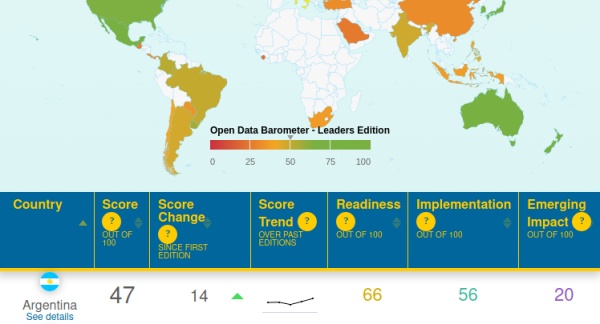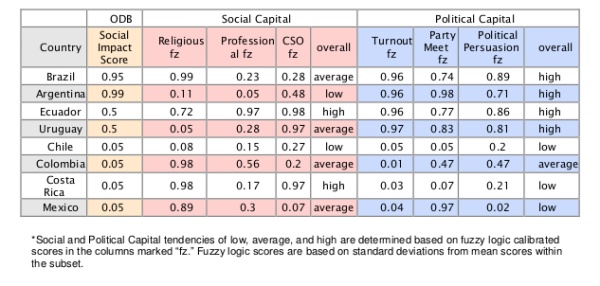Is Open Data for everybody, or not?
It is a challenging and urgent task to innovate democracy…
The sentence above is the beginning of a 2014 investigation on the Roots of Open Data’s Social Impact. How do you innovate democracy? Where can you do it?

The Open Data Barometer (ODB) provides a cross-national study measuring readiness, implementation, and impact of Open Data. The ODB, says the paper, reveals “puzzling inconsistencies”:
- countries scoring high in readiness and implementation do not consistently demonstrate high scores of impact.
- furthermore, impact is elusive in most countries.
Starting from there, the paper looks specifically at the social impact of Open Data, described as marginalized groups having greater access and participation in government decision making. Specifically, the papers describes the result of a research that “evaluates the relationship between civil society and open data’s social impact in eight Latin American countries”.
Results indicate that:
- the social impact of Open Data initiatives has been largely elusive
- societies rich in political capital experience greater social impact from open data
- the promised outcome of Open Data adoption include increased inclusion of marginalized groups in a more participatory democracy. But for that to actually happen, it is imperative to understand what societal preconditions support impact.

One of the summary tables of the report
</em></u>
The most meaningful take-home conclusion of that paper is that the ODB’s measurements of readiness and implementation focus primarily on the technological features and on access to open government data. Those conditions are necessary, but they do not appear to provide sufficient preconditions for change in transparency and accountability.
Another interesting confirmation is that you cannot change a system (not quickly enough, anyway) unless you also change it from within:
- “Open Data advocates should look towards public officials and political parties as important stakeholders and agents of change in the open data movement”
- “Existing political structures could serve as valuable channels and intermediaries for open data’s social impact.”
The final, bittersweet take away is the confirmation that democracy is easier for those who already have and use it: “Countries where citizens already engage with the political system through voting, attending political meetings, or participating in political discussions could be better poised to pick up the tools of open data to create social change."
Oh, and never forget the poors, of course: “particularly in developing countries, data sets and marginalized communities should not be seen as adversarial, but as partners in creating a political agenda and an inclusive vision for development”.
For more on the same general issue, please read, share and comment my Open Data, Open Society report
Who writes this, why, and how to help
I am Marco Fioretti, tech writer and aspiring polymath doing human-digital research and popularization.
I do it because YOUR civil rights and the quality of YOUR life depend every year more on how software is used AROUND you.
To this end, I have already shared more than a million words on this blog, without any paywall or user tracking, and am sharing the next million through a newsletter, also without any paywall.
The more direct support I get, the more I can continue to inform for free parents, teachers, decision makers, and everybody else who should know more stuff like this. You can support me with paid subscriptions to my newsletter, donations via PayPal (mfioretti@nexaima.net) or LiberaPay, or in any of the other ways listed here.THANKS for your support!